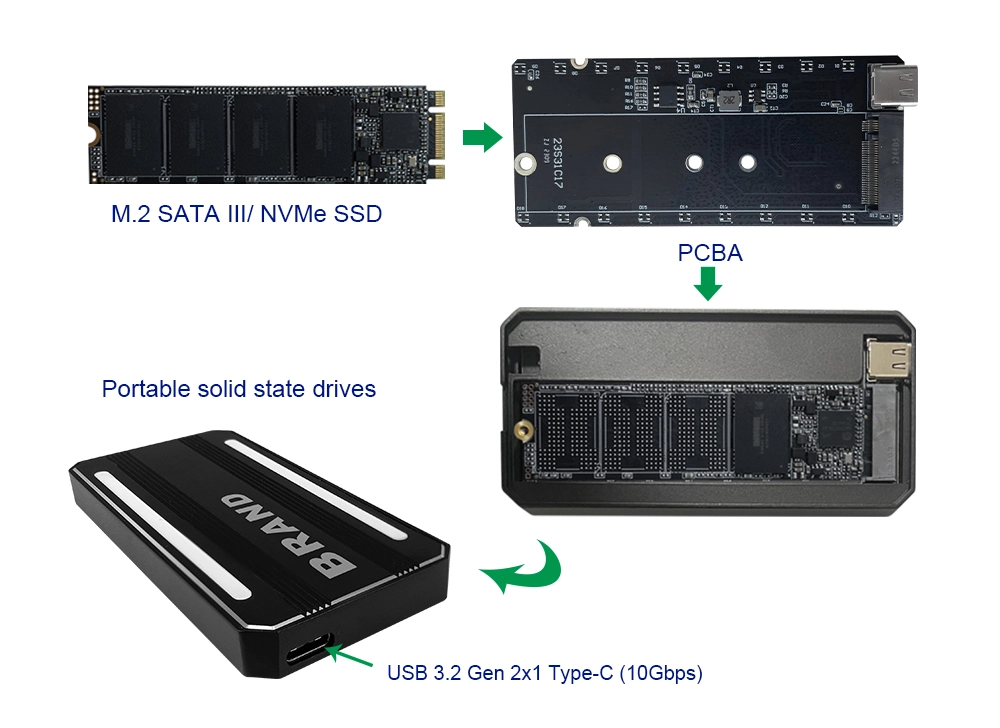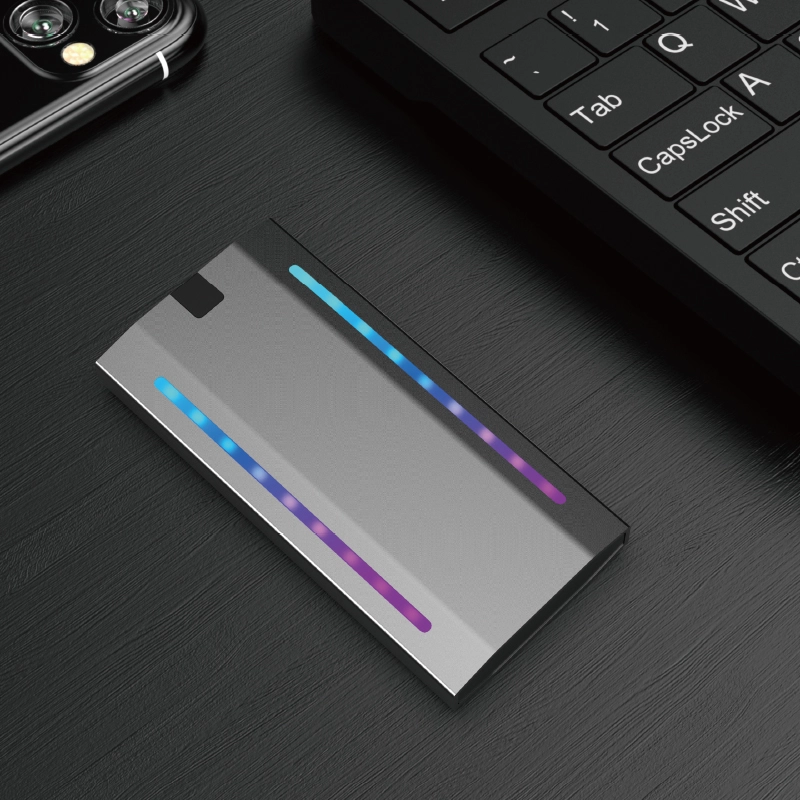Products
| ALL Products | ||
|
||
Resources
- Certifications
- Product-Guides
- Applications
-
Resources
Portable Solid-state Drive (PSSD) represents the development of data storage technology, which combines traditional external hard drives with advanced solid-state architectures. These compact storage solutions integrate three core components: the main control unit, SSD storage memory, and interface bridge controller. This complex project converts internal SSD technology into a portable storage hard drive.
Portable SSDs (PSSDs) merge enterprise-grade NVMe technology with compact form factors, replacing mechanical HDDs in 89% of corporate environments.

The PSSD architecture centers on a precision-engineered PCBA (Printed Circuit Board Assembly) containing:

| Interface: | Read Speed: | Write Speed: | Real-World Use |
|---|---|---|---|
| USB 3.2 Gen 2 | 1050 MB/s | 1000 MB/s | 4K Video Editing |
| Thunderbolt 4 | 2800 MB/s | 2700 MB/s | AI Dataset Transfer |
| SATA III | 560 MB/s | 530 MB/s | Legacy Systems |

Adigisky Co., Limited
Factory: Building B, Chuangxin industrial Park, NO.196 Fusheng Road, Yangwu Village, Dalang Town, Donguan.
Teams: adigisky
WhatsApp:+086 18938042832
Phone: +086 18938042832
Email: sales@adigisky.com